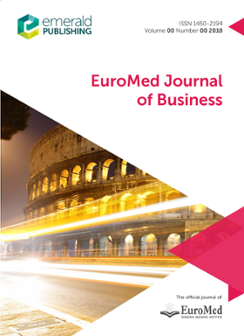利用 PLS-SEM 从利益相关者的角度调查风险导向审计(RBA)关系
IF 3.8
Q2 BUSINESS
引用次数: 0
摘要
本文旨在确定风险导向审计(RBA)的关键变量。研究的变量包括内部审计(IA)、审计委员会(AC)以及风险导向审计与利益相关者(审计委员会、外部审计师、内部审计师、董事会、欺诈调查员、首席风险经理)之间的合作(COOP)。问卷调查的对象包括会计师、内部审计师、经理、首席风险经理和董事会。共收集并分析了 96 份问卷。结果表明,内部审计、审计委员会和风险导向审计与利益相关者的合作这三个变量对风险导向审计(RBA)有显著的积极影响。此外,还证实了内部审计在审计委员会与风险导向审计之间的互动中存在部分互补中介作用。它试图分析风险导向审计中所有利益相关者的看法,包括内部审计、审计委员会等,而不仅仅局限于内部审计师。此外,分析还采用了 PLS-SEM 模型,这是一种检验假设和分析结果的创新工具。本文章由计算机程序翻译,如有差异,请以英文原文为准。
An investigation of risk-based auditing (RBA) relationships from the stakeholders' perspective using PLS-SEM
PurposeThe present paper aims at the identification of the critical variables of risk-based auditing (RBA). The variables under examination are the internal audit (IA), the audit committee (AC) and the cooperation between the RBA and the stakeholders (audit committee, external auditors, internal auditors, board of directors, fraud investigators, chief risk manager) (COOP).Design/methodology/approachA questionnaire survey was conducted among 176 Greek companies. The questionnaires were addressed to accountants, internal auditors, managers, chief risk managers and the board of directors. A total of 96 questionnaires have been collected and analyzed. PLS-SEM modeling was used as a tool to test hypotheses and analyze the findings.FindingsThe results show that three variables, i.e. the internal audit, the audit committee and the RBA cooperation with stakeholders have a statistically significant and positive effect on risk-based auditing (RBA). Additionally, the existence of partial-complementary mediation of the internal audit in the audit committee-RBA interaction is confirmed.Originality/valueThis study is an original research that identifies the essential variables of risk-based auditing in Greek companies. It attempts to analyze the perceptions of all stakeholders in risk-based auditing, including the internal audit, the audit committee, etc. and is not restricted only on internal auditors. Furthermore, the analysis is conducted with PLS-SEM Modeling, which is an innovative tool of testing hypotheses and analyzing results.
求助全文
通过发布文献求助,成功后即可免费获取论文全文。
去求助
来源期刊

EuroMed Journal of Business
BUSINESS-
CiteScore
9.80
自引率
19.20%
发文量
61
期刊介绍:
The EuroMed Journal of Business (EMJB) is the premier publication facilitating dialogue among researchers from Europe and the Mediterranean. It plays a vital role in generating and disseminating knowledge about various business environments and trends in this region. By offering an up-to-date overview of emerging business practices in specific countries, EMJB serves as a valuable resource for its readers.
As the official journal of the EuroMed Academy of Business, EMJB is committed to reflecting the economic growth seen in the European-Mediterranean region. It aims to be a focused and targeted business journal, highlighting environmental opportunities, threats, and marketplace developments in the area. Through its efforts, EMJB promotes collaboration and open dialogue among diverse research cultures and practices.
EMJB serves as a platform for debating and disseminating research findings, new research areas and techniques, conceptual developments, and practical applications across various business segments. It seeks to provide a forum for discussing new ideas in business, including theory, practice, and the issues that arise within the field.
 求助内容:
求助内容: 应助结果提醒方式:
应助结果提醒方式:


